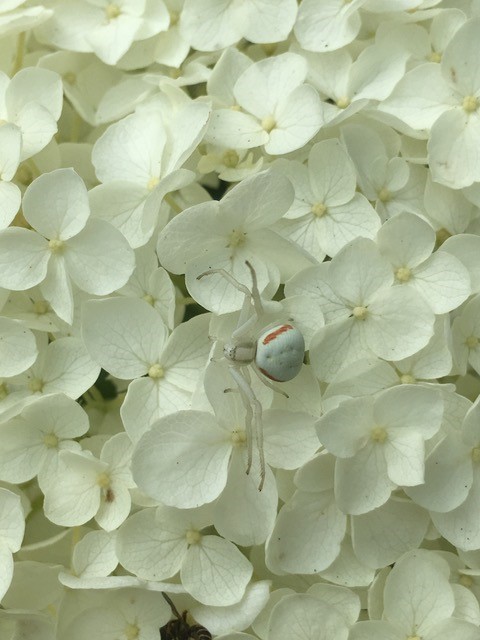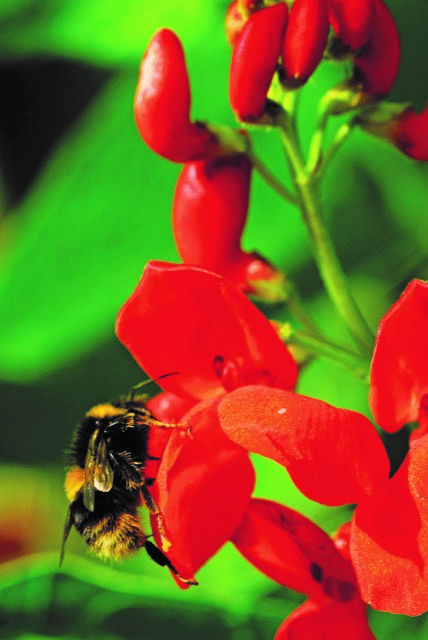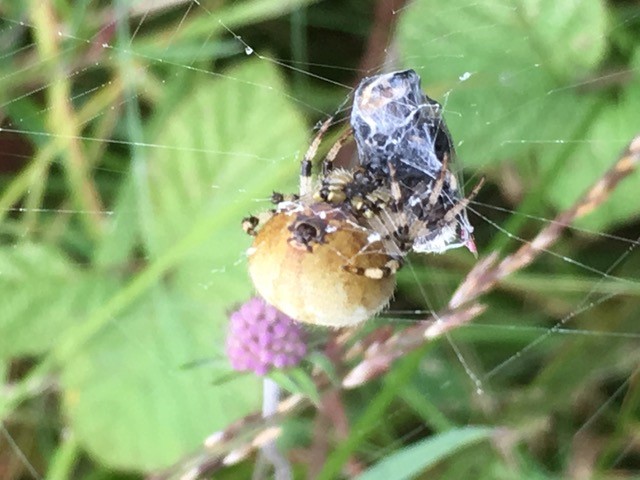
The news is full of stories of invading ladybirds riddled with sexually transmitted disease, spiders with venomous bites and robotic bees.
Is it time we just managed without insects asks Jean Vernon?
What is the point of insects? What do they do? They bite or sting. They spread diseases. They eat our food. Can’t we manage without them?
Am I the only person exasperated by the shock horror news stories surrounding insects in our news lately?
Nine schools in London have been CLOSED due to an infestation of False Widow Spiders? That’s nine communities having to make alternative arrangements for pupils while the schools are sprayed with PESTICIDES to kill off the bugs. What about stinging nettles, wasps and bees, are we going to kill them all too?
Of course spiders aren’t actually insects, but that’s not the point. Is treating an area where children play and learn with pesticides a good idea? Should we panic over every insect that bites or stings? Of course some people can have allergic reactions to some insect bites, but they can also have allergic reactions to milk or nuts and we don’t remove every trace of these from our daily lives? Spiders rarely bite, they don’t have teeth and any wound from any source can become infected with bacteria leading to severe infections. Spider bites are surely the least of our worries not to mention the costs?
Live and let live
When are we going to find a way to live with nature? Instead of trying to kill everything and anything we deem to be dangerous?

A spider free school teaches children very little about the bigger world. A nature table and a lesson about spiders and what an important role in the environment nature plays would surely be more constructive. Teaching children to respect all living things is one of life’s great lessons. Every creature has a place in the extremely delicate cycle of life. Every time we try to remove one ‘problem’ we lay ourselves open to something else filling the space and what comes next could be worse. Have we not learned from antibiotic resistance? The bugs that are now attacking us are stronger than ever before, and our arsenal of weapons are weaker and fewer in number. The antibiotics wiped out the weak ones leaving the strong to inherit the earth and cause some very serious problems to those infected. Survival of the fittest strikes again.
FAKE NEWS?
Or is the fear of litigation if little Johnny get’s stung by a false widow spider? Of course that would be horrendous and is not something that anyone wants. But where do we draw the line? We can’t eradicate every living thing that doesn’t fit into our safe and neat existence. And anyway, the answer is an emphatic NO we can’t exist without insects. Apart from pollinating most of our crops, insects and mini-beasts have a vital role in the food chain. Without insects the food chain would collapse totally. We are already seeing the effects of a reduction in insects in the populations of the next layer up. Our insect eating birds are in decline, as are bats and amphibians, which are also insectivorous.
And it’s not just our food under threat. Much of the winter food which we feed our livestock is insect pollinated, so no pollinators = no meat.
But that’s OK as we are all going vegan? Well no it’s not because even vegans eat food that is insect pollinated.
Aren’t there robot bees on the horizon?
Are you nuts? Yes scientists have invented small robots that can apparently pollinate some crops, but why on earth spend all those resources on AI pollinators when we could do so much more to protect the bees and pollinators that we have?
What do insects do?

Insects are part of our biodiversity, they form vital parts of the food chain, feeding and breaking down organic material into a form that can be absorbed back into plants. Without them we would be buried in organic matter.
They are food for many creatures, including other insects. Bugs eat other bugs and effect a biological control and a balance in nature, whereby an ‘epidemic’ of one insect results in a virtual population explosion of its main predator.
Insects are rich in protein and are food for birds, bats, reptiles and amphibians and may even one day be an essential food source for humans.
Insects pollinate not just our food crops but plants that we need to feed livestock and without them life on earth would and could complete unravel and collapse.
For more information about insects, spiders and all bugs visit the Buglife Website. https://www.buglife.org.uk/










